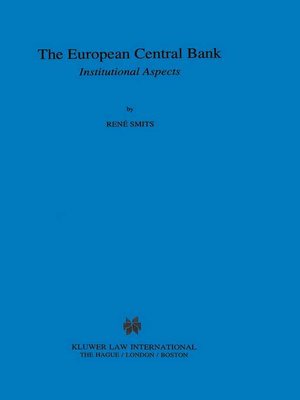The European Central Bank
ebook ∣ Institutional Aspects: Institutional Aspects · International Banking, Finance and Economic Law Series Set
By René Smits

Sign up to save your library
With an OverDrive account, you can save your favorite libraries for at-a-glance information about availability. Find out more about OverDrive accounts.
Find this title in Libby, the library reading app by OverDrive.



Search for a digital library with this title
Title found at these libraries:
| Library Name | Distance |
|---|---|
| Loading... |
The impending establishment of the European Central Bank (ECB) brings a dramatic transition: the introduction of a single European Community (EC) currency.
The European Central Bank describes and analyses, from the perspective of the General Counsel of the Dutch Central Bank, the objectives and tasks entrusted to the ECB and the instruments with which the ECB has been endowed in order to carry out its responsibilities.
In the context of this discussion of the institutional features of the ECB, the author:
The structuring of EC monetary authority as a part of a community based on respect for the law forms a constant theme throughout The European Central Bank.
This work's critical, in-depth analysis; its thought provoking conclusions and summaries of problematic issues; and its clear, grounded structure all make it a particularly useful, scholarly examination of an important development in European and international law.







